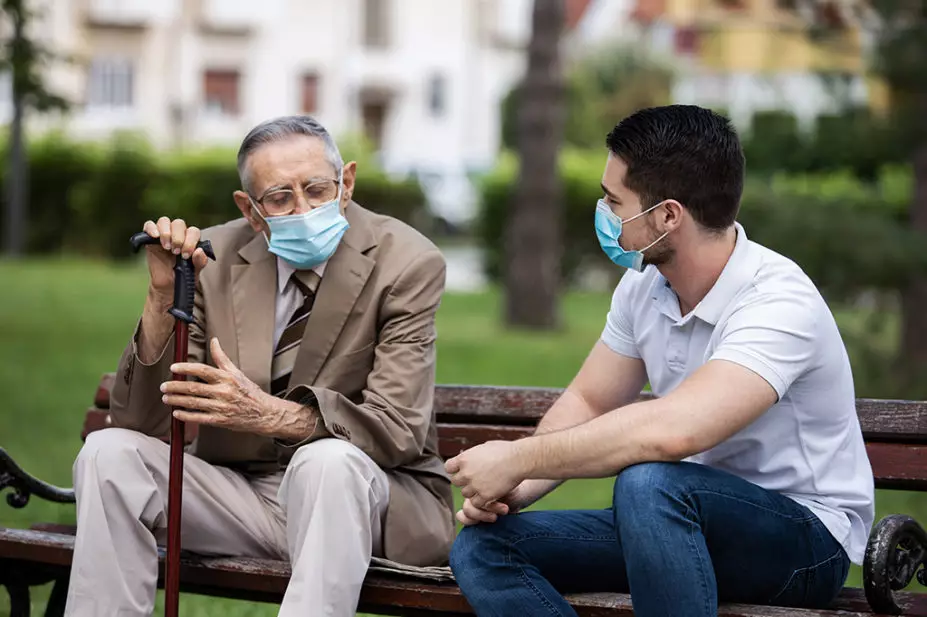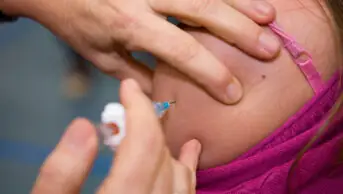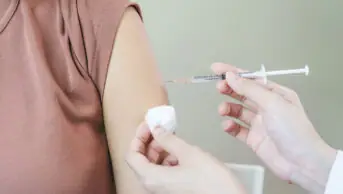
Shutterstock.com
In early 2020, I was thinking about the research project I was going to undertake that summer for my Laidlaw scholarship at the University College London (UCL) School of Pharmacy, and I was excited about my options. But little did I know how drastically things were about to change.
The pandemic arrived, and suddenly there were new priorities. I soon teamed up with Sudaxshina Murdan, associate professor at my pharmacy school. Our project, ‘Vaccination Champion’, aimed to tackle the challenge of vaccine hesitancy, particularly in anticipation of vaccines for COVID-19.
A vaccination champion is a person who understands, supports and promotes the use of recommended vaccines. We focused on training students, particularly those studying health-related subjects, to become vaccination champions and promote vaccination to their communities.
We were inspired by the international ‘Antibiotic Guardian’ campaign, which encourages individuals to pledge contributions to tackling antimicrobial resistance. Admiring the project, we were in touch with its leader, Diane Ashiru-Oredope, lead pharmacist for antimicrobial resistance and stewardship, and healthcare associated infections at Public Health England. Together with Diane, we developed and established the vaccination champion course, delivered as an online workshop.
We set about organising a presentation and a pre-workshop questionnaire, as well as a poster for recruitment. The course was advertised to MPharm and MSc students studying at the UCL School of Pharmacy by email in June 2020.
Participants who signed up completed a pre-workshop questionnaire; this helped us ascertain their existing knowledge, attitudes and beliefs about vaccination. The two-hour online workshop was conducted in July 2020 via Zoom, comprising a presentation, polls and breakout rooms. In the online workshop, we discussed vaccines, vaccination and vaccine hesitancy.
After the workshop, participants were encouraged to make a vaccination promotion action, such as speaking with vaccine-hesitant family and friends, and posting about vaccines and vaccination on social media. A post-workshop questionnaire — which contained the same questions as the pre-workshop questionnaire, as well as a call for feedback on the course — revealed that all 53 students completed an action.
The students had in-person conversations with friends, parents, siblings, family members, neighbours and customers in the pharmacy. They promoted vaccination on social media platforms, such as Instagram, Twitter, Facebook, YouTube, WordPress and Medium; and shared leaflets and articles, as well as posters that they had created.
Topics included the direct and indirect benefits of vaccination, vaccine myths and facts, vaccine efficacy and safety (including the very low incidence of adverse effects), herd immunity, MenACWY, HPV and MMR vaccines, the development of COVID-19 vaccines and the rigorous testing of vaccines.
Participants urged their audiences to use reputable sources for information about vaccination; for example, their GP. Through their social media posts, students provided website links to organisations, such as the NHS, World Health Organization, Centers for Disease Control and Prevention, the Wellcome Trust, Public Health England and UNICEF. And some created polls on their platforms, which they followed up with vaccination facts using trusted links.
The students reported deep engagement with their audiences, and the course allowed us to learn from participants how vaccines and vaccine hesitancy are discussed within families and extended families. In fact, it didn’t seem to have been discussed at all.
But once the course took place, and the silence was lifted, conversations abounded, increasing communication and understanding. We realised we weren’t aware of our families’ views, and realised how important one-to-one conversations about vaccines and vaccination are in addressing vaccine hesitancy, alongside public health messages from the government and other bodies.
Sudaxshina, Diane and I are now planning to conduct courses like this one with undergraduates and postgraduates, in collaboration with partner organisations, and in other countries. And our discoveries from the project helped us to write a learning article for The Pharmaceutical Journal on how pharmacists and pharmacy teams can address vaccine hesitancy, which you can read here.
Nusayba Ali, third year MPharm student and Laidlaw scholar, UCL School of Pharmacy
Acknowledgements
Sudaxshina Murdan, reader/associate professor in pharmaceutics, UCL School of Pharmacy
Diane Ashiru-Oredope, lead pharmacist for antimicrobial resistance (AMR), Public Health England; honorary lecturer, UCL School of Pharmacy; global AMR lead, Commonwealth Pharmacist Association


